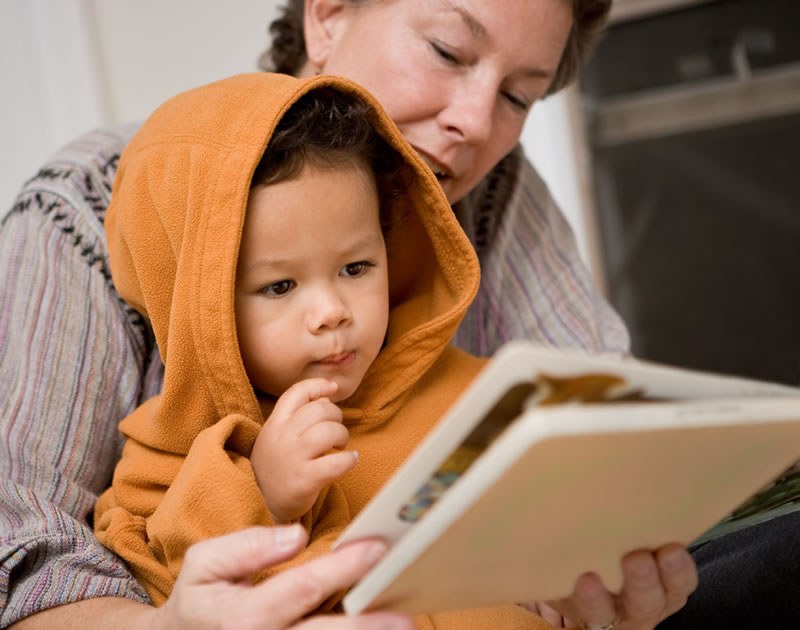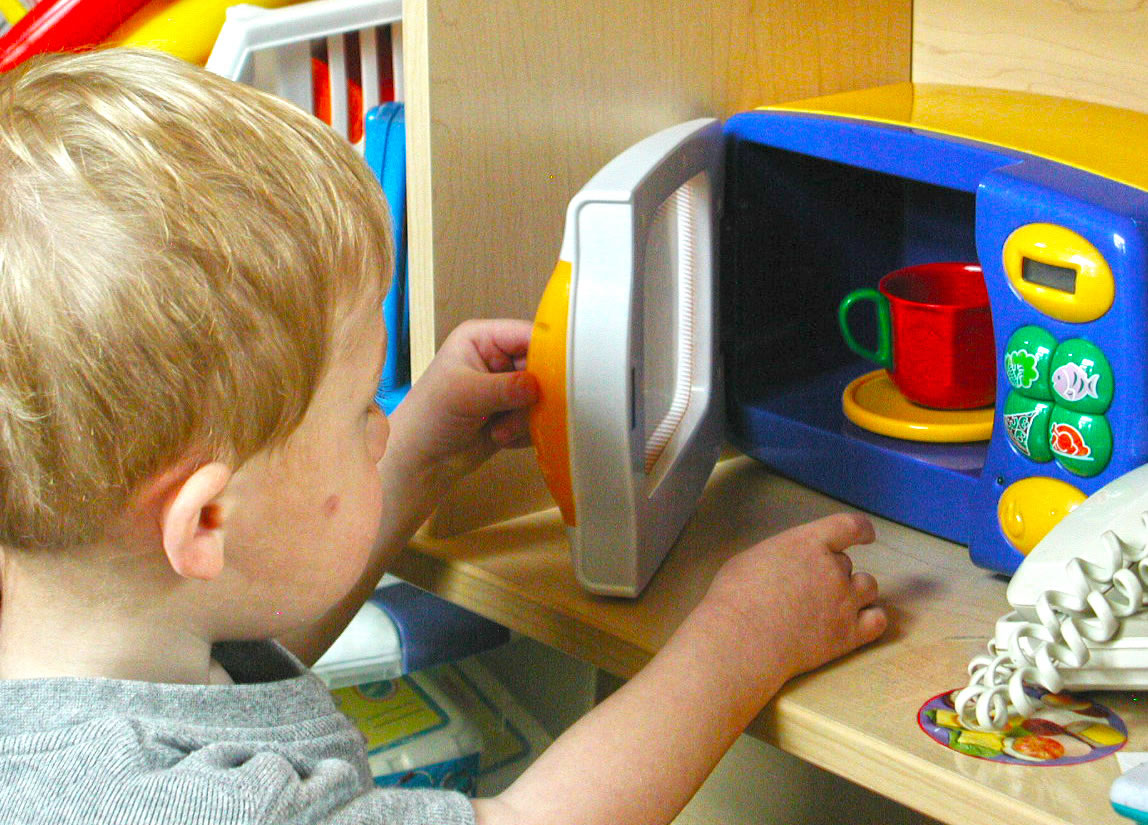Steps that help children develop language and early literacy skills.

Research shows supporting early language experiences supports future literacy success. To be well informed and in tune with language development, we need to know more. A strong foundation in language development is a valuable gift to give children and is easy and fun to do!
Language suggestions for newborns and infants
- Explain routines by "talking" the action ("Lola, you need your diaper changed. I'm going to pick you up and go to the diaper table... here we go...").
- Orally label people and things relevant to their lives, such as siblings, toys, and pets. ("Lola, here comes your brother Ben. Ben wants to show you his picture!").
- Offer response time for infant to coo or respond or just to learn the "timing" of conversing with another.
- Imitate an infant's sounds and encourage him to imitate you.
- Play interactive games such as peek-a-boo, patty cake, this little piggy.
- Sing and provide opportunities to hear music.
- Read and have books available for holding and looking at (chunky books are nice).
Language suggestions for toddlers
- When children offer simple language, such as "dog," we can expand the language by replying, "Yes, that's Henry the dog. He's wagging his tail."
- Expand actions. For example, to a child drinking a big cup of water, say "You must have been so thirsty; you drank the whole cup of water!"
- Ask open-ended questions. For example, "What do you think Henry the dog is trying to tell us?" or "How can I get Henry's ball from under the table?"
- Connect with labels and visuals by adding pictures, photographs, and labels to items in the environment.
- Provide experiences in rhyming, finger plays, chants, and response stories, and offer materials to experiment in drawing, writing, and painting.
Language suggestions for older toddlers and preschoolers
- Offer multiple ways to express ideas (verbally, drawing/writing, acting out, picture cues, art, books, photographs, journals).
 Introduce interesting and varied vocabulary, often repeating a word with other words of the same meaning (big, large, huge).
Introduce interesting and varied vocabulary, often repeating a word with other words of the same meaning (big, large, huge).- Encourage children to tell their stories while you write them down Create writing centers with paper, envelopes, mailboxes, stamps, and lists of names.
- Act out familiar stories, made up stories, and even the children's invented stories.
- Support and implement small group experiences that encourage children to interact and share ideas (art projects, building projects, dramatic play).
- Have children help make labels for items/materials in the environment.
- Provide paper, pencils, clipboards, in conjunction with other activities such as dramatic play, blocks, and outside time.
- Encourage problem solving as well as predictions, possibilities, and opinions ("How can we fix this problem? What might happen? What do we need to do? How do you feel about that?").
- Provide materials to pretend and practice real life experiences, such as dramatic play materials (cooking, babies, driving, grocery shopping, etc.).
TIPS 10-8

